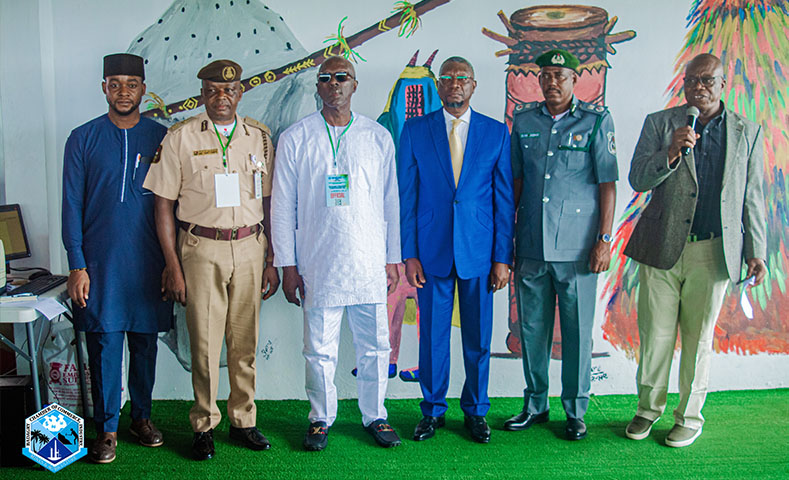
The Badagry Chamber of
Commerce Industry Mines and Agriculture (BACCIMA), in collaboration with the
Universal Research & Training Institute (URTI) as consultants and with
technical support from the Federation of West African Chambers of Commerce and
Industry (FEWACCI), has initiated a transformative project aimed at enhancing
small-scale informal cross-border trade. This initiative, known as the
Small-Scale Informal Cross Border Trade (SSICBT) project, is designed to
support and formalize the activities of traders who operate within the
Badagry-Seme border region, a vital commercial corridor between Nigeria and
Benin Republic. Here’s an in-depth look at the project and its anticipated
impacts.
Background and Objectives
Informal cross-border
trade plays a significant role in the economies of many African nations,
including Nigeria. Despite its importance, this sector often operates without
formal recognition or support, leading to numerous challenges such as:
- Lack of access to
credit and financing
- Inadequate
infrastructure and facilities
- High transaction costs
and tariffs
- Exposure to corruption
and exploitation
The SSICBT project, with
guidance from URTI and technical support from FEWACCI, aims to address these
issues by:
1. Formalizing Trade
Activities: Registering informal traders and providing them with necessary
documentation to operate legally and efficiently.
2. Capacity Building:
Offering training programs on business management, financial literacy, and
trade regulations.
3. Infrastructure
Development: Improving market facilities, storage units, and transportation
networks.
4. Access to Finance:
Creating microfinance schemes and partnerships with financial institutions to
provide credit facilities.
5. Policy Advocacy:
Working with government agencies to streamline trade policies and reduce
bureaucratic hurdles.
Key Components of the
SSICBT Project
1. Trader Registration
and Documentation:
- Establishing a comprehensive database of
traders operating in the Badagry-Seme corridor.
- Issuing identification cards and trade
licenses.
2. Training and Capacity
Building:
- Organizing workshops and seminars on
entrepreneurship, trade regulations, and financial management.
- Providing resources for improving product
quality and packaging.
3. Infrastructure
Improvement:
- Upgrading border markets and creating
designated trade zones.
- Enhancing transportation infrastructure to
facilitate easier movement of goods.
4. Financial Inclusion:
- Developing microfinance initiatives
tailored for small-scale traders.
- Partnering with banks and fintech
companies to offer affordable financial products.
5. Policy and Advocacy:
- Engaging with local, national, and
regional authorities to advocate for supportive trade policies.
- Facilitating dialogue between traders and
policymakers to address challenges and opportunities.
The Role of Universal
Research & Training Institute (URTI)
As consultants for the
SSICBT project, URTI brings a wealth of expertise in research, training, and
development. Their role includes:
- Conducting Baseline
Studies: Assessing the current state of informal trade and identifying key
areas for intervention.
- Developing Training
Modules: Creating tailored training programs that address the specific needs of
small-scale traders.
- Monitoring and
Evaluation: Establishing metrics and tools to monitor the progress of the
project and measure its impact.
- Stakeholder Engagement:
Facilitating communication and collaboration between traders, government
agencies, and financial institutions.
The Role of FEWACCI
FEWACCI provides
technical and Institutional support to the SSICBT project, leveraging its
extensive network and experience in promoting regional trade and economic
integration. Their contributions include:
- Technical Expertise:
Offering insights and best practices from similar initiatives across West
Africa.
- Networking
Opportunities: Facilitating connections between traders, policymakers, and
regional trade organizations.
- Advocacy: Supporting
policy reforms and initiatives that enhance cross-border trade efficiency.
- Resource Mobilization:
Assisting in the acquisition of funding and resources from regional and
international partners.
Anticipated Impacts
The implementation of the
SSICBT project is expected to bring about significant positive changes for the
Badagry region and beyond. Some of the key impacts include:
1. Economic Growth:
- Increased formalization of trade
activities will boost local economies by increasing tax revenues and promoting
transparency.
- Enhanced access to finance and
infrastructure will enable traders to expand their businesses and create jobs.
2. Empowerment of
Traders:
- Training and capacity-building initiatives
will empower traders with the knowledge and skills to improve their business
operations.
- Access to formal financial services will
enable traders to invest in their businesses and improve their livelihoods.
3. Improved Trade
Efficiency:
- Better infrastructure and streamlined
policies will reduce transaction costs and transit times, making cross-border
trade more efficient.
- Formalization will reduce corruption and
exploitation at border points, ensuring fairer trade practices.
4. Regional Integration:
- Strengthening cross-border trade ties
between Nigeria and Benin Republic will foster regional economic integration
and cooperation.
- The success of the SSICBT project could
serve as a model for other border regions in West Africa, promoting wider
economic collaboration.
5. Social Development:
- The project will contribute to the social
development of the Badagry region by improving the standard of living for
traders and their families.
- It will also support the inclusion of
women and youth in economic activities, promoting gender equality and youth
empowerment.
Conclusion
The SSICBT project by the
Badagry Chamber of Commerce Industry Mines and Agriculture, with the Universal
Research & Training Institute as consultants and technical and
Institutional support from FEWACCI, represents a bold step towards transforming
the informal cross-border trade sector. By addressing the challenges faced by
small-scale traders and providing them with the tools and support they need to
thrive, the project promises to unlock significant economic and social benefits
for the Badagry region and beyond. As the project unfolds, it will not only
enhance the livelihoods of countless traders but also contribute to the broader
goal of regional economic integration and sustainable development.
Gallery




